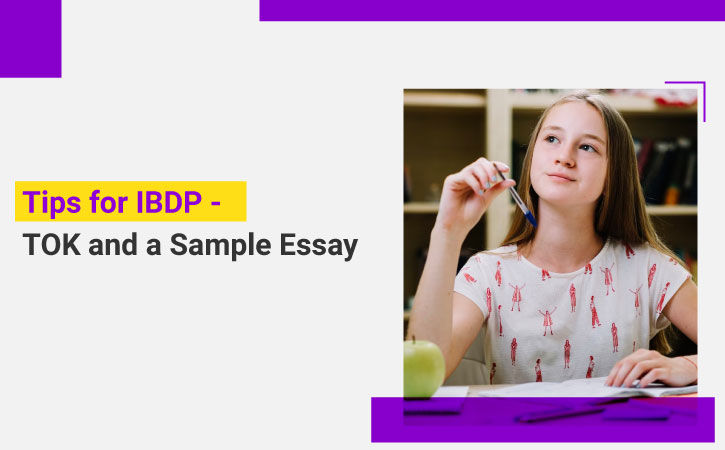

The International Baccalaureate Organization as it was initially known was implemented in 1968. It is headquartered in Geneva Switzerland. The IB has curated four different programs for students in the age group 3-19 years.
The IB DP program was designed to provide a tedious, challenging diploma program that is internationally recognized and can be used as a stepping stone to admission to leading universities across the globe.
This board does not have any formal examinations. Assessments for the IB DP program are both internally and externally assessed components to measure student performance. For, most of the courses, the written examinations at the end of the DP program form the basis of assessment.
Externally assessed coursework completed by the students over an extended period forms a basis of assessment for several programs including the core elements of the DP program which need to be mandatorily completed by the students to earn the diploma.
The three Core elements of the DP program are – Theory of Knowledge, Extended Essay, Creativity, Activity, and Service.
Apart from these three core components, DP requires the students to choose one subject each from the six academic groups
A component of the IB curriculum is its internal assessments and at least 20% to 30% percentage weightage is given to the non-written part of the subject. The IA can be taken as a paper, project, oral presentation, workbook, or a sequel of experiments as given below depending on the subjects.
This is one of the components of the three mandatory core components of the IB Curriculum. The TOK requirement is central to the educational philosophy of the IB curriculum. It plays an important role in the IB curriculum, by providing an opportunity for students to reflect on the nature of knowledge and how they know what they claim to know.
The course seeks to give the students a foundation to interrogate human knowledge and question where the knowledge comes from. It includes how to probe evidence and ask what qualifies for evidence for a claim – how to scrutinize models and claims and how to apply theories in real-world situations.
The objective of the course is for the students to interrogate their own assumptions about key knowledge, their belief system, and ideological viewpoint, enabling them to form an awareness of cultural differences and perspectives.
Areas of Knowledge (AOK) means specific branches of knowledge, each of which can be distinctly used to gain knowledge. AOK can be considered as various pots with glasses of water of different tastes. Each pot quenches the students’ intellect in a different way. Each AOK enhances the students’ perspectives, bettering their learning abilities. So, does that mean every AOK is a different entity and thus completely independent? Absolutely No!! All the disciplines offered are interconnected in a subtle way.
The eight AOKs are:
Going back to the pot analogy, if the AOK are the pots, then the ways of knowing are the methods used to drink the water. You can use a cup, transfer the water into a water jug and then pour it into a cup or you can attach a small tap to the pot to fill the water in a cup. In simple terms, the ways of knowing can be considered tools to explore an AOK.
The eight ways of knowing are:
There is no specific relationship between a particular WOK and an AOK. Each WOK can be used to investigate any of the AOK.
In reality, there are basically three kinds of knowledge:
I/We know how —— SKILLS
I/We experience + reflect ——– EXPERIENTIAL KNOWLEDGE
I/We know that ——– KNOWLEDGE CLAIMS
The TOK course is assessed through an exhibition and a 1600 worded essay. The exhibition is internally assessed, and the essay is evaluated externally.
The exhibition requires the students to prepare a presentation of three objects that explores how TOK manifests in the world around us. And the essay focuses on the conceptual issues of the TOK.
So, the knowledge questions are questions about the concept of knowledge and what it means to know. These questions definitely do not demand a yes/any answer in the style of a traditional debate.
Knowledge questions are created along the four key elements are:
An example of the TOK question:
How do we know that a source or claim be trusted be tested?
The TOK aims at creating the student awareness of the interpretative nature of the knowledge, including personal ideological biases –whether these biases are accepted, revised, or rejected. It also gives the students and their teachers an opportunity to
In addition to the above, the TOK encourages students to
Manya – The Princeton Review offers end-to-end study abroad services encompassing admissions consulting services, test preparation, English language training, career assessment, and international internship opportunities to study abroad aspirants. Founded in 2002, Manya holds an impeccable track record of enabling more than 4 lac students to accomplish their study abroad dreams through its network of 47+ centers across India.
Manya has formed long-lasting global alliances with several market leaders in the education industry in order to maximize the benefits of its large service portfolio. Their list of esteemed partners and affiliations includes – The Princeton Review (TPR), Cambridge University Press (CUP), Cogito Hub, British Council, and Tuding to name a few. Manya has also forged 600+ partnerships with international universities across top study abroad destinations.
Book your Free Counselling Session now!The goal of TOK is to educate students on the interpretive nature of knowledge, including their own personal ideologies and whether they should be accepted, changed, or rejected.
Students commonly experience the TOK course as one of the most challenging components of the IB Diploma program. The TOK course is evaluated by a 1,600-word essay and the TOK display. It is worth 2/3 of the final score and is graded by outside examiners.
There are four key elements of the Theory of Knowledge which is :
Given below are the eight Areas of Knowledge:
Although there are undoubtedly many different ways to know, the TOK course focuses on eight distinct ways of knowing (WOKs). They are :

Tips for IBDP-TOK and a Sample Essay